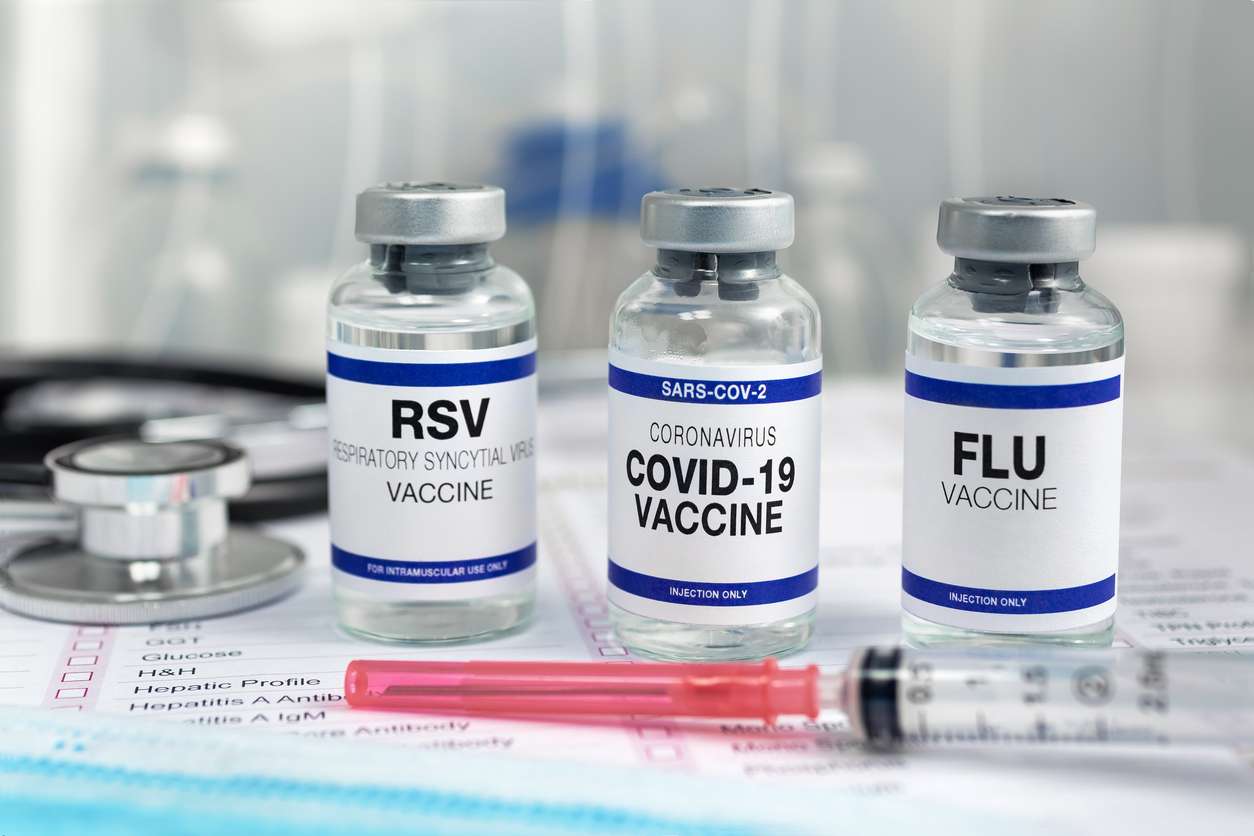Are you prepared for the fall and winter seasons? As the cooler seasons approach, the threat of respiratory illnesses like influenza (the flu), respiratory syncytial virus (RSV), and COVID-19 becomes bigger. With overlapping symptoms and potential complications, it’s important to understand the importance of vaccinations in protecting your health. The Houston Health Department (HHD) provides essential guidance on how to protect yourself and your loved ones as the colder months ensue.
“Vaccines are an important instrument in our toolbox to protect us from vaccine-preventable infections and diseases. During this time of year, influenza and other respiratory illnesses like RSV and COVID-19 are widespread, so we must boost our immune system with safe and effective vaccines to add another layer of protection,” Houston Health Department’s Deputy Public Health Authority, Dr. Janeana White, says.

What to Know About the Viruses
Flu: Influenza mutates rapidly, making it necessary for annual updates to the flu vaccine to match the most common circulating strains. According to the CDC, there are two main types of flu viruses: A and B. The influenza A and B viruses that routinely spread in people (human influenza viruses) are responsible for seasonal flu epidemics each year. The flu can lead to serious complications, especially in the elderly, pregnant women, and those with chronic illnesses.
RSV: RSV is a common respiratory virus that infects the lungs but can also affect the nose and throat. It spreads in the fall and winter, along with other respiratory viruses, like flu and COVID-19. According to the CDC, it usually peaks in December and January. While it often causes mild symptoms similar to the common cold, it can lead to severe bronchiolitis and pneumonia in vulnerable populations. RSV symptoms make it difficult to distinguish it from the common cold or other respiratory viruses (like the flu or COVID-19). Most people who get RSV will only have mild illness, but it can be very dangerous for babies, young children, and adults 60 and older.
COVID-19: Despite the decline in cases and severity due to widespread vaccination, COVID-19 remains a concern for many, especially with the emergence of new variants. People with COVID-19 may experience respiratory symptoms that feel like a cold, the flu, or pneumonia. Most people with COVID-19 have mild symptoms, but some are at a higher risk of developing severe disease and may require hospitalization. COVID-19 is spread primarily through contact with droplets made by people who are sick when they cough, sneeze, or talk. In some cases, a person might get COVID-19 by touching a surface or object that has the SARS-CoV-2 virus on it and then transferring the virus to their mouth, nose, or eyes, the CDC advises. Annual boosters like the flu shot are now recommended to maintain immunity, particularly for high-risk individuals.
The Importance of Getting Vaccinated

According to HHD experts, vaccination remains the most effective defense against these viruses, helping reduce the severity of illness and preventing hospitalizations. The CDC recommends that everyone aged six months and older should receive an annual flu vaccine. This year, the flu vaccine is designed to combat the most common strains that are expected to circulate.
For COVID-19, the CDC continues to urge people to stay up to date with their vaccines, including booster shots. With the virus still circulating and new variants emerging, staying vaccinated is crucial in reducing severe illness, especially for those at higher risk, such as older adults and individuals with underlying health conditions.
“We often forget what communities had to deal with before vaccines were available. Many people, young and old, were hospitalized and more deaths occurred as well. Over time, we have been able to include vaccines in routine health care and health prevention strategies, which have helped reduce illness and death,” Dr. White said. “This time of year, it’s important for healthcare providers to ensure that patients and communities have access to vaccinations and the resources they need. We don’t want to see people to suffer unintended consequences by not being vaccinated, or by not having access to vaccines.”
CDC’s Recommendations for This Fall and Winter
1. Flu Vaccine: The CDC recommends that babies six months and older receive their flu shot by the end of October. Early vaccination is important as it allows your body time to build immunity before flu activity peaks. Different formulations are available, including high-dose vaccines for older adults, which provide extra protection.
2. COVID-19 Vaccination: The CDC advises staying up to date with COVID-19 vaccinations, including any updated booster shots that target the most recent variants. As the virus continues to evolve, getting the latest booster can provide enhanced protection against severe outcomes.
3. RSV Vaccine: For the first time, the CDC recommends RSV vaccination for adults 60 years and older, particularly those with chronic medical conditions. The vaccine can help reduce the risk of severe illness and complications from RSV.
4. Co-Administration of Vaccines: According to the CDC, it’s safe to receive the flu, COVID-19, and RSV vaccines simultaneously. This co-administration can simplify the process and ensure that you are protected against multiple viruses at once, especially important for those with busy schedules or limited access to health care.
Steps to Maximize Your Protection
Consult Your Healthcare Provider: Before receiving any vaccines, talk to your healthcare provider, especially if you have underlying health conditions or concerns about vaccine interactions.
Practice Good Hygiene: In addition to vaccinations, maintain good hygiene practices such as regular handwashing, wearing masks in crowded places, and staying home when you’re feeling unwell to reduce the spread of any respiratory viruses.
Stay Informed: Keep up to date with CDC guidelines and HHD recommendations, as they may change based on the latest scientific evidence and virus activity. Consulting with your healthcare provider will help ensure that you receive the most appropriate vaccines for your age, health status, and lifestyle. HHD regularly updates guidelines based on the latest research and emerging virus strains.
“Remember, during respiratory viral season, if you’re feeling sick, it’s important to stay away from others at work, school, or home and consult your healthcare provider. It’s important to remember certain medications are available to shorten the course of your illness,” Dr. White advised.
As we look forward to navigating the colder months, vaccinations offer a shield of protection against the flu, RSV, and COVID-19. By following health experts’ recommendations and taking proactive steps to safeguard your health, you can significantly reduce your risk of contracting these severe illnesses and contribute to a healthier community. Remember, the best defense is a well-prepared one—so arm yourself with the necessary vaccines and stay vigilant, by any means necessary!
Sources: Houston Health Department, Centers for Disease Control and Prevention








